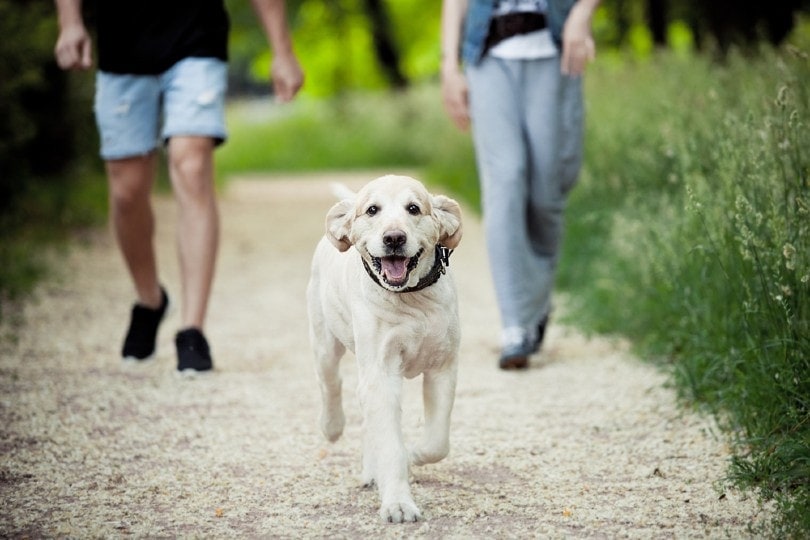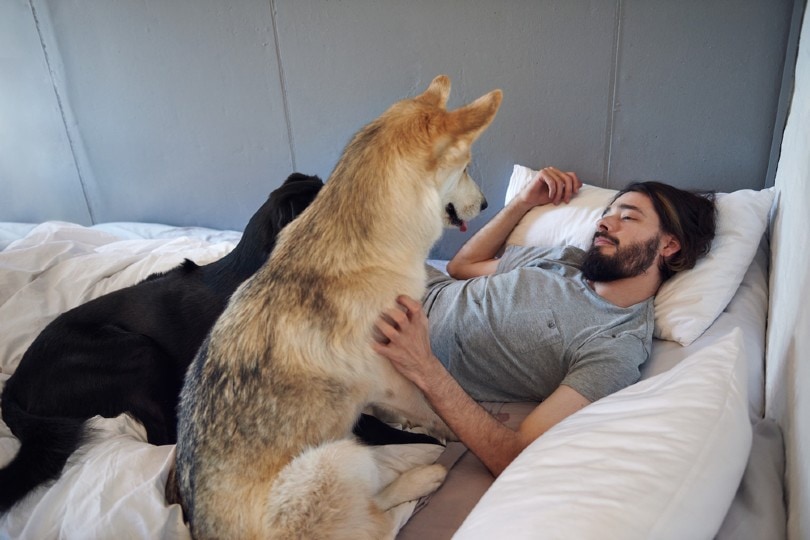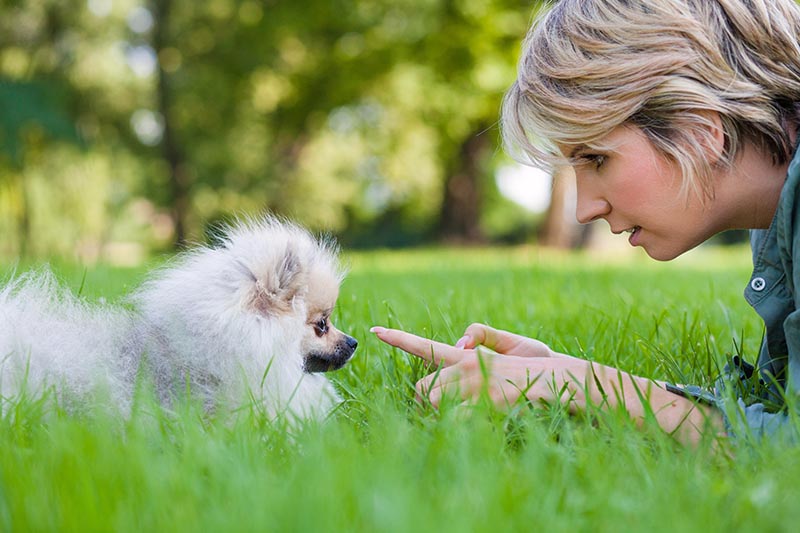Dogs have many ways of communicating with each other and with their owners, such as licking, sniffing, and barking. Sometimes, your dog will bark at you to tell you that it needs something, whether it’s food or attention. Other times, your dog may be barking to let you know that there’s a threat nearby or that something is amiss. But how do you know which is which?
Check out the four potential reasons for your dog’s barking behavior to see what you can do to give your dog what it needs and curb its excessive woofs.
The 4 Reasons Your Dog Barks At You
1. Your Dog Wants Food
If your dog is looking at you and barking, but not growling or exhibiting signs of aggression like pinned ears, raised hackles, or a low tail, it could mean it’s hungry. If it’s around dinner time, that’s a sure sign your dog is saying “Hey, feed me!” Even if your dog ate, most dogs are food motivated and it may just be a request for more food.

2. Your Dog Is Ready for a Walk
Dogs need exercise and look forward to their human bonding time, such as the daily walk. If you walk your dog around the same times every day, the barking may just be a reminder that it’s time to get going.
3. A Toy or Another Treasure Is in an Inaccessible Place
Dogs have a habit of knocking toys or other goodies under tables or couches while playing. If your dog is barking at you and running to the couch or the table to paw or scratch, there’s a good possibility that the treasure is under the furniture and they can’t get it. Your dog is just letting you know it needs a helping hand.

4. Your Dog Needs Some Attention
Most dogs love attention from their owners. In some cases, your dog may be so demanding for attention that it barks at you to get it. This isn’t good behavior to reinforce, however. If you give in to such demands, you’re creating a reward cycle that teaches your dog to bark every time it wants attention. Though it may be convenient for you now, the next time may be during a work call or while you’re tending to dinner. Instead, teach your dog different ways of signaling a desire for attention, such as sitting in front of you or raising a paw.
How to Curb Excessive Barking
Dogs communicate by barking, so it’s unrealistic to expect a dog will never bark. If the barking gets to be too much, however, you can train your dog to tone it down.
- Never yell at your dog. This just stimulates your dog to bark more, since it thinks you’re joining in. Speak calmly and firmly.
- Train your dog to understand the “quiet” command. Say “quiet” in a calm, firm voice when your dog barks. Once it stops, give your dog a treat and praise for being quiet. Over time, your dog will associate the command with a reward.
- Another option is to teach your dog to “speak,” or bark on command. Once you get that training down, you can teach your dog to stop barking at the “quiet” command.
- Consider if the barking is occurring because your dog is bored. If your dog doesn’t get a lot of activity, it can fuel barking. Try to exercise your dog more to tire it out and reduce excessive barking.
- Barking offers an adrenaline rush for dogs, so if you let the behavior continue, your dog is more likely to bark all the time.
- Some medical conditions can lead to excessive barking and vocalization, such as dementia, brain diseases, or chronic pain. If excessive barking arises out of nowhere, take your dog to the vet to see if there’s an underlying cause.

Final Thoughts
Dogs bark for a variety of reasons, but some context clues can give you an idea of what your dog is looking for when it barks at you. Pay attention to body language, the time of day, and what your dog may need to determine the reason for the barking.
Featured Image Credit: dahancoo, Pixabay











